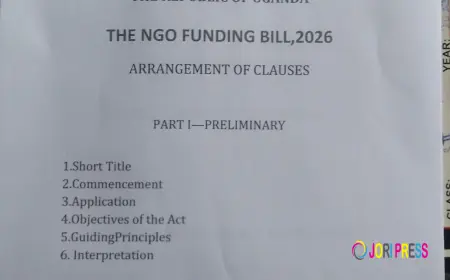What Happens If You Get Sued and Can’t Pay? USA Legal Insights

Facing a lawsuit is stressful, especially when you’re unsure how to cover the costs. Whether it’s a personal injury claim, unpaid debt, or a business dispute, legal judgments can have serious financial consequences. If you lose a lawsuit and can’t pay, what happens next?
In this guide, we’ll explore the legal process, potential consequences, and strategies to protect yourself when you’re unable to satisfy a court judgment.
Understanding the Lawsuit Process
Before diving into the aftermath of an unpaid judgment, it’s important to understand how lawsuits work in the U.S.
-
Filing a Complaint – The plaintiff (person suing you) files a legal complaint outlining their claims.
-
Serving the Defendant – You (the defendant) receive official notice of the lawsuit.
-
Responding to the Lawsuit – You must file an answer within a set timeframe (usually 20-30 days).
-
Pre-Trial & Discovery – Both sides exchange evidence and may attempt settlement negotiations.
-
Trial & Judgment – If no settlement is reached, the case goes to trial, and a judge or jury decides the outcome.
-
Enforcement of Judgment – If you lose, the plaintiff can take legal steps to collect what’s owed.
What Happens If You Lose and Can’t Pay?
If the court rules against you and you lack the funds to pay, the plaintiff can use various legal methods to enforce the judgment.
1. Wage Garnishment
-
A court can order your employer to withhold a portion of your paycheck (typically 15-25%) until the debt is paid.
-
Some states protect low-income earners from excessive garnishment.
2. Bank Account Levy
-
The creditor can freeze and withdraw funds from your bank account.
-
Certain funds, like Social Security or disability benefits, may be exempt in some states.
3. Property Liens
-
The creditor can place a lien on your home or other property, meaning they get paid when you sell or refinance.
-
In some cases, they may force a sale to recover the debt.
4. Seizure of Personal Assets
-
Depending on state laws, creditors may seize valuables like cars, jewelry, or electronics.
-
Essential items (e.g., work tools, basic household goods) are often protected.
5. Debt Collection Efforts
-
Creditors may hire collection agencies to pursue repayment.
-
They might also report the unpaid judgment to credit bureaus, damaging your credit score.
Can You Go to Jail for Not Paying a Lawsuit Judgment?
In most cases, no. The U.S. outlawed debtors' prisons, meaning you can’t be jailed solely for owing money. However, there are exceptions:
-
Contempt of Court – If you ignore court orders (e.g., refusing to attend a debtor’s examination), a judge may hold you in contempt, leading to fines or jail time.
-
Unpaid Child Support or Taxes – These are exceptions where jail time is possible.
What If You Have No Money or Assets?
If you’re judgment-proof (meaning you have no income or assets to seize), creditors may temporarily halt collection efforts. However, judgments can last for years (often 10-20, depending on the state), and they may renew their attempts if your financial situation improves.
Options If You Can’t Pay
-
Negotiate a Settlement – Creditors may accept a reduced lump-sum payment or installment plan.
-
File for Bankruptcy – Chapter 7 or Chapter 13 bankruptcy can discharge or reorganize debts, stopping collections.
-
Claim Exemptions – State laws protect certain assets (e.g., primary home, retirement accounts) from seizure.
-
Dispute the Judgment – If there was an error, you may appeal or request a payment adjustment.
How to Protect Yourself Before a Lawsuit
Prevention is the best strategy. Consider these steps:
1. Liability Insurance
-
Homeowners/Renters Insurance – Covers personal injury or property damage claims.
-
Auto Insurance – Protects against accident-related lawsuits.
-
Umbrella Insurance – Provides extra liability coverage beyond standard policies.
2. Asset Protection Strategies
-
Retirement Accounts – 401(k)s and IRAs are often shielded from creditors.
-
Homestead Exemption – Some states protect home equity from forced sales.
-
Trusts – Certain trusts (like irrevocable trusts) may offer asset protection.
3. Legal Help
-
Consult a lawyer if you’re sued—many offer free consultations.
-
Respond to lawsuits promptly to avoid default judgments.
Final Thoughts
Being sued and unable to pay is a daunting situation, but understanding your rights and options can help you navigate it effectively. Wage garnishment, bank levies, and property liens are common enforcement methods, but exemptions and legal strategies can offer protection.
If you’re facing a lawsuit, don’t ignore it—seek legal advice immediately. Proactive measures like insurance and asset protection can also reduce future risks.
For more legal insights and financial protection tips, visit uorni.
What's Your Reaction?
 Like
0
Like
0
 Dislike
0
Dislike
0
 Love
0
Love
0
 Funny
0
Funny
0
 Angry
0
Angry
0
 Sad
0
Sad
0
 Wow
0
Wow
0

















































